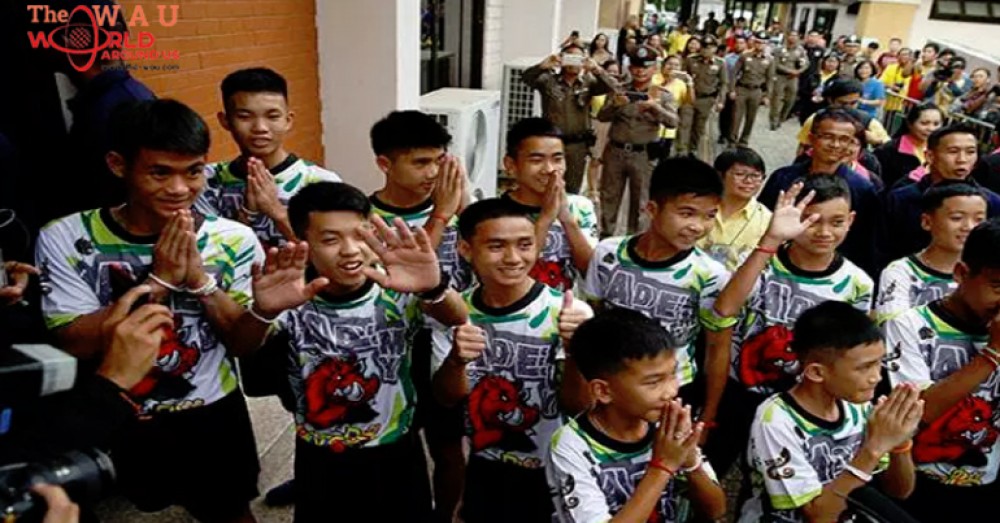Three boys from the Wild Boar soccer team and their coach, who were rescued from deep within a flooded cave in Thailand last month, have been granted Thai citizenship.
In a ceremony in Chiang Rai province Wednesday, the Mae Sai district chief approved citizenship for Ardoon Sam-aon, Mongkol Boompiam, Ponchai Khamluang, and assistant coach Ekkapol Ake Chanthawong.
The Wild Boar team attracted international attention in late June when 12 young players and their coach ventured inside a cave in northern Thailand for an afternoon excursion but found the exit blocked by rising floodwater.
The team was trapped for almost three weeks, before cave diving experts from around the world led a complex operation to bring them out on stretchers carried through narrow tunnels.

Ardoon Sam-aon (center), who spoke to British divers in English when the team was first found, at a press conference after they left the hospital.
Ardoon, the 14-year-old soccer player who spoke English to British cave divers when they were found, was born in neighboring Myanmar, and taken into care by a local Mae Sai Grace Church group as a child.
Mae Sai sits at the very edge of the border between Thailand and Myanmar, and it's not unusual for families to cross the border to search for work or go to school. Many in Mae Sai are members of minority groups, and sit at the crossroads of the two countries.

There are 430,000 stateless people living in Thailand, according to the UN Refugee Agency (UNHCR). People may be registered as stateless if their Thai parents cannot be found, if they come from areas where national borders have changed, or if they live in remote areas without information about nationality procedures.
...[ Continue to next page ]
Share This Post












